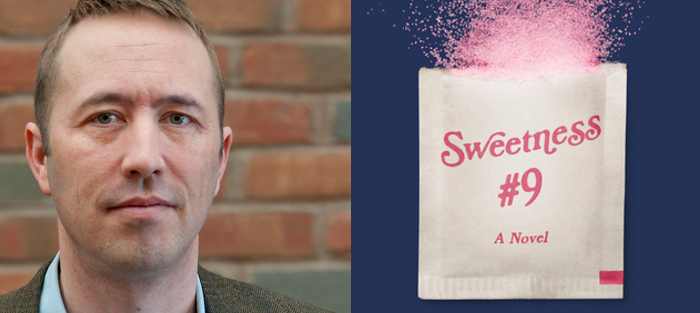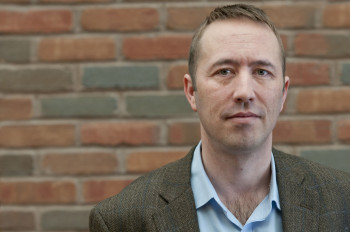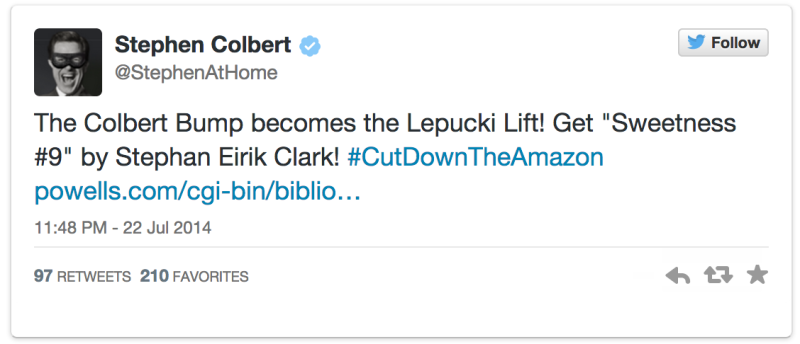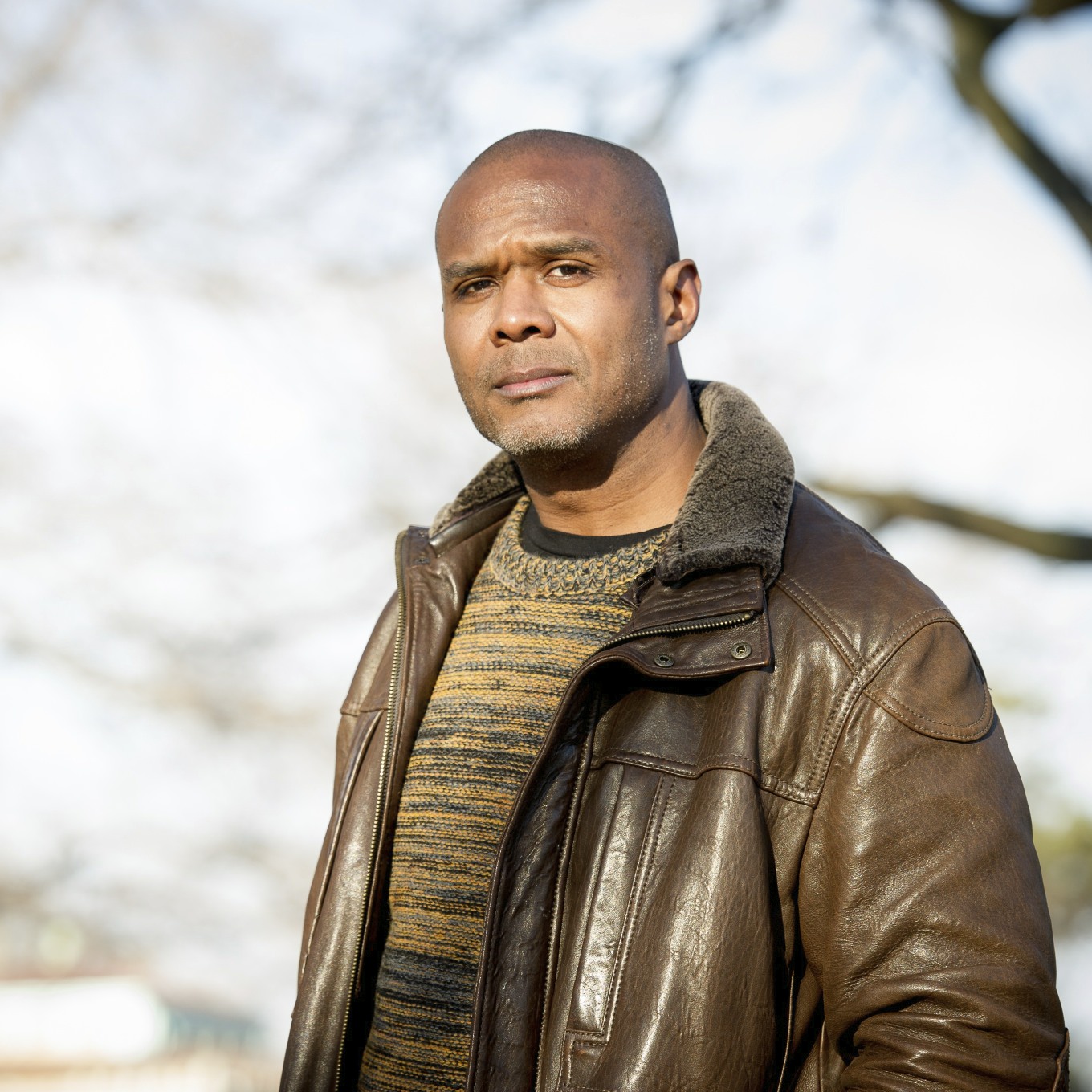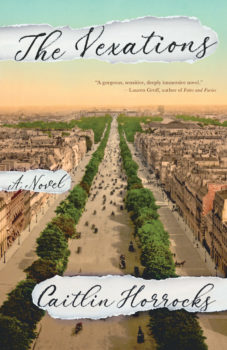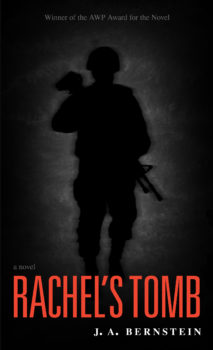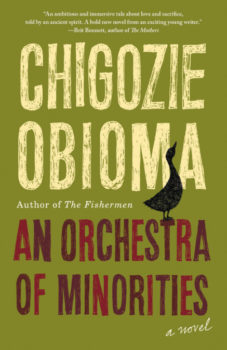The first time Stephan and I met—outside of class, that is (we were both doctoral candidates in English at the University of Southern California)—he suggested a dive bar in Hollywood. To say it smelled bad would be a compliment to most plumbing systems. But the bourbon was cheap, and because it was so dark and unpopulated, you could watch the Giants, as he did, without running the risk of getting shot by a Dodgers fan. Stephan held forth that day in 2007 on Nabokov, pitching, mail-order brides (the subject of his research on a recent Fulbright Fellowship to Ukraine), Ralph Nader, and the state of the Left. His politics were elusive, which shouldn’t come as a surprise, given that he was born in West Germany to a Norwegian mother and a Texan father.
Gradually, it became apparent that Stephan, for all his elusiveness, had a wicked sense of humor—rare enough in L.A.—and one that’s amply displayed in Sweetness #9 (Little, Brown and Company), his debut novel, which hit the stands last month after receiving a firm boost from one of the world’s most popular talk shows. In case you missed it, Stephan’s book was prominently touted by Stephen Colbert, who has been waging a personal war against Amazon as a consequence of the online retailer’s ongoing dispute with the Hachette Book Group, the parent company of the publishers of Stephen’s and Stephan’s books. Reviews and press soon followed in The Times, NPR, The Atlantic, USA Today, and other venerable quarters.
It’s also worth pointing out that Stephan’s book was close to thirteen years in the making—a stark reminder to us all of the importance of perseverance—and the product of countless revisions. At one point, he was about to scrap it. (And yes, I humbly admit that I told him to keep at it; that this thing was fucking good, and he’d be crazy to abandon it.) I even recall mentioning the oft-cited fact that Kafka died unknown and penniless, which was not a remark Stephan liked at all. Then again, Kafka never had to drink Ukrainian vodka or navigate the 10 after dark. Yes, Stephan is starting to enjoy a life of acclaim, and one that’s more than deserved.
Interview:
Josh Bernstein: What was the biggest challenge you faced in writing this novel—aside from the obvious one of getting it published?
Stephan Eirik Clark: Deciding to keep going. I started this book shortly after 9/11, and though I did a lot of other things along the way (write a short story collection [Vladimir’s Mustache], earn a Ph.D., get married and have kids, eat, bathe, shop, etcetera), The Novel was always there, standing like a Boo Radley figure in the shadows behind me.
In late 2009, I thought I might be finished with The Thing, as I was then calling it, but when a reader echoed my unvoiced concerns about how I’d structured the story (the past and present of the story was interwoven, not presented chronologically), I knew I had to go back in and make the suggested edits.
I couldn’t find the time to do the work, though. I need long uninterrupted stretches of time when I’m working on a novel, especially one with a complex storyline, and with studying and then teaching, moving, raising my first son, moving again, and applying for new jobs, I came up short time and time again. I’d cobble together a few weeks here or there, and I’d push the novel out to this or that point, but then I’d have to stop for weeks or months at a time. When I did find the time to get back to The Thing, I’d spend the first few weeks trying recapture the story in my head—only to be interrupted once more.
It was a terrible cycle that kept repeating until I visited the Anderson Center in Red Wing, Minnesota, where I was able to work on the book for thirty uninterrupted days. There, I was able to write the last of the new material that went into the novel, and also fit together all of the existing pieces that belonged in the final draft. I finished on my last morning there, just minutes before my wife arrived to pick me up. If it weren’t for the Anderson Center, I might still be slogging away at it.
How did you come up with the voice of David in the novel? What, if anything, inspired it?
Like my protagonist, David Leveraux, I grew up in England and had a thick English accent as a child. By high school, I had assimilated, spoke like a Californian, and felt very American. But I think the ghost of my past was always with me, because when I started working in radio in the late-90s my English accent reappeared. It sprang out of me, like a spirit set free by an exorcist.
At the time, I was the news director at KWNE in Ukiah, working the early morning shift with DJ Bill Steele. Bill was a great funny man, a master of impressions and voices who was constantly speaking to me in a cockney accent or the voice of an exasperated English drill sergeant. “Look at you! You’re a disgrace, private!” One day, I answered in an English accent, but not one like I heard Bill using; it was the sort of accent you’d hear on BBC news—and in the small village just outside of London, where I’d been raised (less than ten miles from the village where Ricky Gervais grew up, it turns out).
After that, I couldn’t stop speaking like that, even outside of work. The accent took over my life. Luckily, I found a use for it. I started Sweetness #9 not long after this, and from the first moment the voice was there. David provided a body for it. So if you’re reading the novel at home, do so with an English accent. That’s how the book was written.
Do you think your book offers a sense of closure to the reader? Generally, do you think that’s important for a novel?
Like most contemporary writers of literary fiction, I’m happy to lead readers up to the point at which the rest of the story can be glimpsed. In other words, I want to take a reader just far enough so he can see the rest for himself. I also know that not everything in a story can result in closure, if only because that’s a true reflection of the real world.
But at the same time, if you’re a reader and you commit ten or twenty hours to a book, you deserve as much closure as you’d expect at the end of a good friendship. A writer shouldn’t just turn his back on a reader and go away; you should linger, set a reader down easily. That’s why the last part of the book races forward in time, showing the reader what happens to all of the main characters in the twelve or thirteen years after the event that truly “ends” our story. (I’m not sure if I would have written this part without the influence of my wife, by the way. Raised on the classics of Russian literature, she likes old-fashioned novels that don’t “just end.”)
Critics have noted the influence—sometimes explicit in these pages—of DeLillo, Nabokov, and others. Do you see yourself as writing in opposition to them, or with them looking over your shoulder, to some extent?
I think authors are always in conversation with those writers they admire most, and that’s probably especially true when you’re writing your first novel. A debut novelist has all of literature with which to play. So if I riff on some of the most famous Nabokov lines (and make my novel a fictional memoir, like his Lolita), or if I invoke Hitler and his bunker, as DeLillo has done, that’s both a tip of the hat and my attempting to take this material somewhere new.
I don’t imagine there’ll be as much of this in my next novel, because, well, take Hitler’s bunker. You can only imagine it in fiction one time, and I’ve already spent that bullet. So perhaps writing is a narrowing act, one that funnels down to a truer and more personal voice. Or perhaps you just need to find new toys to play with. I don’t know. We’ll see.
Clearly your novel, like many of DeLillo’s, takes aim at a number of American institutions: corporatism, fast-food, suburbia, upward mobility, Reaganism, the Cold War, the military-industrial complex, self-improvement, weight loss, consumerism. Did you set out to target any of these things, or did they just fall into line?
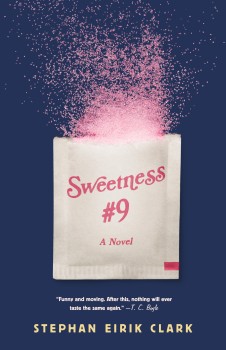 All along, I knew I wanted to tell a big story—that of America in the 20th Century, that most American of time periods. So much in the country changed after World War II, and the books I admire most have tried to reflect that change, in whole or in part. What I didn’t want to do was tell this story in a way that readers had already seen, so I grew very excited when I discovered the world of flavor creation. It offered me so much that was unique and unexplored: a workplace that hadn’t yet been the setting of a work of fiction, industry-specific jargon and speech, and a whole range of metaphors and products through which I could discuss American life.
All along, I knew I wanted to tell a big story—that of America in the 20th Century, that most American of time periods. So much in the country changed after World War II, and the books I admire most have tried to reflect that change, in whole or in part. What I didn’t want to do was tell this story in a way that readers had already seen, so I grew very excited when I discovered the world of flavor creation. It offered me so much that was unique and unexplored: a workplace that hadn’t yet been the setting of a work of fiction, industry-specific jargon and speech, and a whole range of metaphors and products through which I could discuss American life.
More than anything, I wanted this book to take on the processed food industry. As a satirist, I wanted my novel to serve as a kind of corrective to it, if only by asking readers to question what it is they’re eating. But the food industry doesn’t exist in a vacuum, so it’s what it reveals about American life that is really at the center of the novel.
Is there anything you regret about writing this novel? Any pages left out, or chapters included (or interviews given) that have caused you to look back?
I had a reader recently tell me that Sweetness #9 was the thinnest “big book” he could remember reading. That was incredibly gratifying to hear, because, fearing the difficulty of selling a big fat novel as my debut, I did my best, through constant rounds of revision, to make my prose as concentrated as one of those cubes of just-add-water bouillon.
Along the way, I probably wrote 1,200 or 1,500 pages of original material—or roughly three or four times what’s in the finished manuscript. This included three types of material: those pages I wrote during the early exploratory years, when I only wanted to eavesdrop on my characters to discover who they were; the pages I ended up keeping, often in reduced form; and those pages I eliminated from my final draft, with varying levels of confidence.
Some of the pages that I was unsure about moved in and out of the manuscript several times, including some (the flavorists’ visit to “The Museum,” Beekley’s speech about the Gastrophilic Liberation Front) that were re-inserted only after I sold the novel. I might try to return one more of these omissions to the paperback edition (a paragraph on a mid-nineties research trip to Seattle that I didn’t realize I’d left it out—one hazard of a writing process that could be called Perpetual Revision), but I think it would take a whole new expanded edition, the type of thing that comes out ten or twenty years after initial publication, for me to return to the manuscript an introduction that I had long imagined beginning the book.
The introduction (again, a nod to Lolita) is written in the voice of David Leveraux’s chiropractor, who acts as David’s literary guardian (and feels the pressure to live up to the example set by Dmitri Nabokov) after David flees the country as a fugitive of the law. Now reduced to the novel’s final footnote, this introduction imagines David’s death (he is shot and killed at the Berkeley Farmer’s Market, where Michael Pollan helps tackle the gun-man to the ground) and references a scene, also removed from the novel, that takes place on the morning of 9/11 and is either grotesquely fitting or in terrible taste, I’m still not sure which. What convinced me to remove this material (and yes, I am using the passive construction) was the thought that the novel should start in David’s voice. I also realized that some of this material was repetitive and covered well enough by David’s final scene with Hickey. Still, there was so much I loved about this introduction, and if I had been an established writer, with an audience as patient as it was eager for my next book, I probably wouldn’t be writing these words now.
Apart from your endorsement by Stephen Colbert, do you think your experience in publishing this novel has been similar to that of most first-time authors?
Those debut novelists who get a sizable advance—half-a-million dollars or more, let’s say—they don’t have much to worry about. In addition to having a lot of money in the bank even if their books don’t sell, they can expect to receive a ton of publicity when their debut does come out, if only because critics love to ask if all that money was worth it. Every one else, though, those are the debut writers who have something to worry about, because if you don’t sell enough copies of your first book, you might not be invited back to publish a second. So you do what I did: in short, everything your publisher asks of you. You write little essays that intersect with the themes of your book, or you do interviews like this one—all hoping to get your book in front of potential readers.
I know I’m one of the lucky ones. I had some great things lined up before my novel was mentioned on the Stephen Colbert show—NPR’s Fresh Air, a review in the New York Times Book Review—but the book got a whole other level of attention after Edan Lepucki went on TV and recommended it to Stephen’s millions of viewers. So while my experience is similar to that of most first-time authors, my luck is not. I’m extremely grateful. But even so, I can’t rest, because it’s not how many people have heard of your book that matters; it’s how many readers have picked it up and taken it home—and then pressed it into the hands of their friends, saying you have to read this, this is the work of a new writer we’ll be following for years.
What sorts of burdens, if any, are new today for writers?
In the seventies, John Irving broke out with his fourth book, The World According to Garp. Today, I think Irving might have had trouble finding a big publisher after his second or third book didn’t sell. Maybe I’m wrong, but if I am, I wonder if Irving thought this way in the seventies. I know I’m not the only novelist writing today who believes he has to break out (or at least break even) with his first or second book. Certain things are undeniable. With corporate consolidation, the industry is more profit-driven today than it was just a few decades ago. Those independent publishing houses that used to put the prose first—they’re gone, replaced by multi-nationals that care about good writing, yes, but also run price-to-earnings reports and are trying desperately to figure out how to survive in a world of e-books and Amazon.
What would you say to beginning authors?
If you’re not independently wealthy, I would say to get out while you still can, unless you absolutely must be a writer. Because if you’re working and raising kids and trying to maintain friendships and love affairs and family connections, there’s not a lot of time left over for writing. If you focus on the writing, I’m saying, which is what you have to do to get better, you end up sacrificing a lot. To return day after day to a world of your imagination, the world you inhabit in reality suffers. Maybe you marry later, if at all, or go through one unsatisfying relationship after another because all of your time is going to the keyboard. Maybe you can’t go to a restaurant or buy a new car—or even a used one—because the odd jobs you take to keep yourself writing barely pay enough to cover the bills. You have to love the process if you’re going to tolerate all of this, because at the end of it all, when you’ve finally got a book you’re proud of, you still have to hope someone will buy it, and the way the industry is changing, you can’t start a book that might take ten years to write and know with any degree of certainty who, if anyone, will be there to read it when you’re done.
What would you say to the established ones?
Be the literary culture you want to see. If you want to live in a world where people talk about books, talk about books. Send authors notes of admiration, if not by finding their email address or social media presence online, then by writing a letter to the writer’s publisher. If you want to live in a world populated by thriving, independent bookstores, a world where any well-written, well-told story might be hand-sold and find an audience through word-of-mouth, then buy your books at independent bookstores, even if it costs a little bit more, and even if you’re “just a grad student” or otherwise not swimming in money. If you do the other thing, if you support The Thing That Shall Not Be Named, then by the time you can afford to buy books elsewhere, there may not be an elsewhere anymore—and the only books that do get published will be the type of blockbusters you see on the homepage of any online retailer.
What are you working on next?
A novel called American Gulag that imagines a Russian-style revolution in America following the collapse of the U.S. Dollar. A system of prison camps is established to house those people who’d once believed themselves “too big too fail.” The largest camp is housed inside the former Mall of America—the first influence of Minnesota on my writing.

